Messiah comes to Brisbane
By Simon Miller, Library Technician, State Library of Queensland | 22 April 2013
Handel's Messiah has been performed hundreds of times in Brisbane, but the first ever performance in Brisbane of this favourite of all choral works took place 140 years ago, on the 25th of April 1873. This was the second concert of the Brisbane Musical Union, an organisation that is still performing Handel's masterpiece to this day, under the name of the Queensland Choir.
The formation of the Brisbane Musical Union followed a series of failed attempts to form a viable musical society going back as far as 1849. The South Brisbane Harmonic Society consisted of a small group of music lovers meeting at the Mechanics Institute. Rehearsals had been suspended due to a lack of musical leadership but the arrival of Mr R. T. Jefferies soon sparked them back to life. Richard Thomas Jefferies had made a name for himself in London as a violinist, a conductor and as a thoroughly competent musician. The success following his appointment as conductor of the Harmonic Society led to the formation of a North Brisbane branch and then to the combining of the two branches into the Brisbane Musical Union.
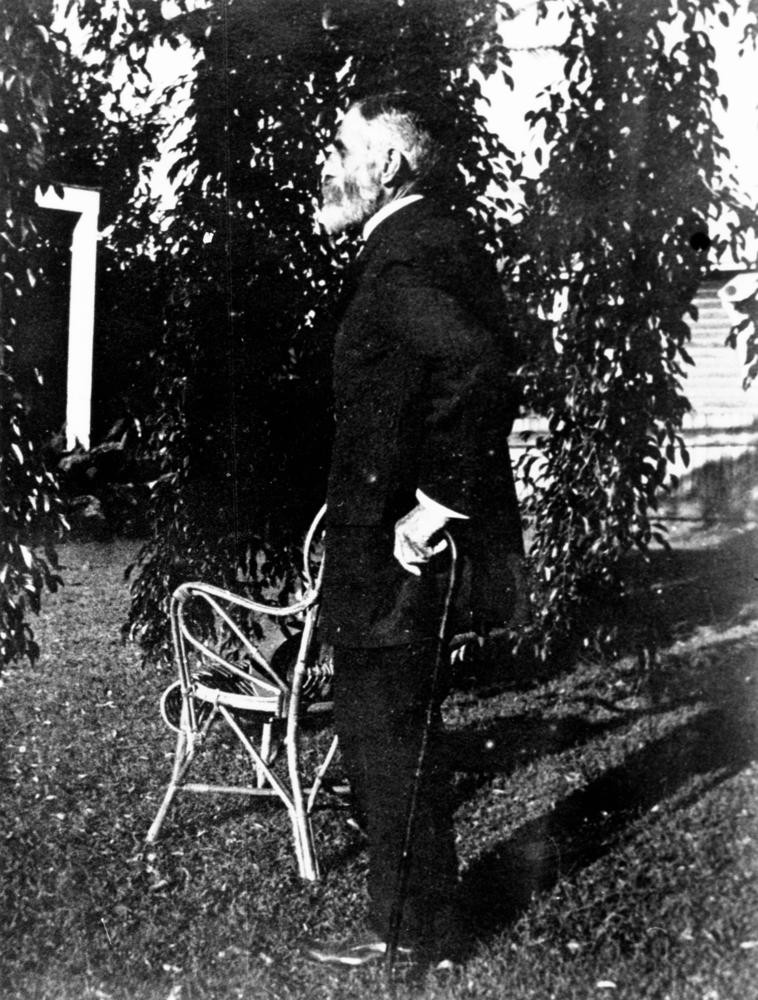
The John Oxley Library holds two pamphlets detailing the early history of the Musical Union. A brief retrospect of the Brisbane Musical Union published in 1882 and A retrospect and resume of the work done by the Brisbane Musical Union 1872-1906. The later publication has a description of the first concert of the Musical Union.
The first concert of the "Union" was given on Wednesday, the 18th December, 1872, Romberg's 'Lay of the Bell' being the principal item. The newspaper comments were very cordial and eulogistic. The concert was given in the School of Arts Hall ..., to a large and overflowing audience. His Excellency the Governor, and the Marchioness of Normanby and suite, were present. The bell used on that occasion was the one subsequently erected at the Ann Street Presbyterian Church, and is, we believe, in use there at the present time.
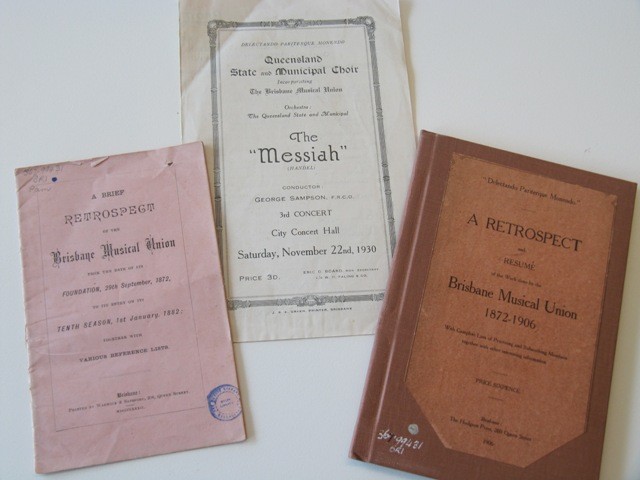
Strangely the first pamphlet gives the date of this first concert as Thursday, the 17th December, 1872 but they both agree that the Messiah was performed on the 25th of April, 1873. Early History of Music in Brisbane, a paper for the Royal Queensland Historical Society by C. G. Austin from 1961 provides more information about this performance.
The ever-green "Messiah" is now performed regularly in Brisbane, but it was only due to Mr. Jefferies' energy in assembling an orchestra that the first performance of Handel's "Messiah" in Brisbane came to be given on 25 April 1873. Mrs. Wilkie sang the soprano solos, and Miss Muriel Smith the contralto solos, and the tenor and bass solos were taken by two "gentlemen amateurs."
The Brisbane Courier published a review of the concert the next day.
IT was certainly a rather ambitious undertaking to give the full oratorio of "The Messiah" in Brisbane. Even in London, the metropolis of the world, or in the large provincial towns of the United Kingdom, several of which contain more people than we have in a territory more than ten times as great as England, such an attempt has not always escaped adverse criticism. But, taking everything into consideration, the delivery of the oratorio last night was something far beyond what might reasonably have been expected. We try to avoid the fault of indiscriminate praise of all public performances which is a general failing of colonial journalists, but on this occasion we merely echo the opinion of all who were present when we say that the manner in which the oratorio was put before the public, last night, proves that there is an amount of musical talent in Brisbane that would be considered to reflect credit on a city containing a much larger number of inhabitants. It has also given evidence of the great care that has been taken by the conductor, Mr Jefferies, in training the vocal and instrumental performers. ...
The concert yesterday evening was attended by a crowded audience. Early in the afternoon it was declared that no more seats could be reserved. The chorus consisted of more than a hundred ladies and gentlemen, and there were between twenty and thirty instrumental performers. The programme was so lengthy-- very little being omitted from the original score of the oratorio--that we cannot attempt even to enumerate the pieces. Generally speaking, it may be said that the solemn and sublime magnificence of the music was well interpreted by the instrumental performers, and by the chorus. ...
Altogether the Musical Union may be congratulated on the success which has attended their production of so extensive, varied, and difficult a work as the " Messiah." It certainly ought to be repeated, although we have seen no announcement to that effect. It is stated that Mr. Jefferies is making preparations for enabling the public to enjoy another great oratorio-" Elijah." The energy, patience, and tact he has displayed in getting together and keeping together so many talented musical amateurs is very creditable to him. And it is likewise creditable to Brisbane that so many amateurs can be found, amongst a comparatively small population, who are willing to give up a great deal of their time to the practice of music for the purpose of giving pleasure to the public as well as to themselves.
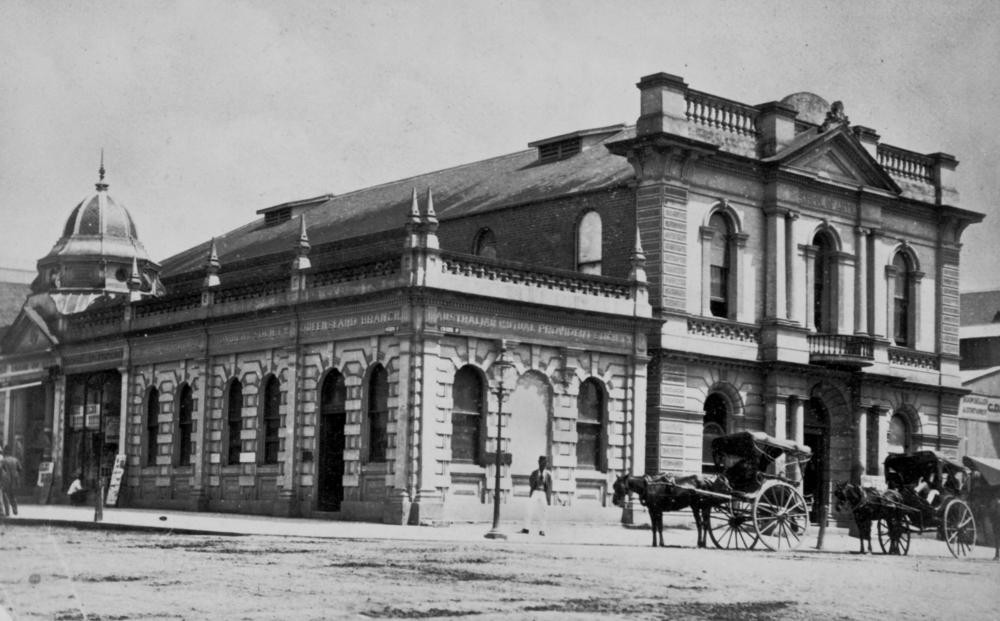
The Brisbane Music Union went from strength to strength until in 1930 it was combined with the Brisbane Austral Choir to form the Queensland State and Municipal Choir. It was this new version of the choir that sang the first Messiah to be performed at the brand new Brisbane City Hall, as eagerly anticipated in the Brisbane Courier.
Handel's "Messiah," which is eagerly looked for, by very many music lovers, will be performed for the first time in the City Concert Hall, on Saturday, November 22, when the Queensland State and Municipal Choir (incorporating the Brisbane Musical Union) will give the third concert for the 1930 season. The solo work has been entrusted to Miss Myrtle Power (soprano), Miss Lena Hammond (contralto), Mr. W. W. Crisp (tenor), and Mr. J. E. England (bass). A particularly large choir of over 200 voices will be assisted by the Queensland State and Municipal Orchestra, and both bodies will be under the baton of Mr. George Sampson, F.R.C.O.
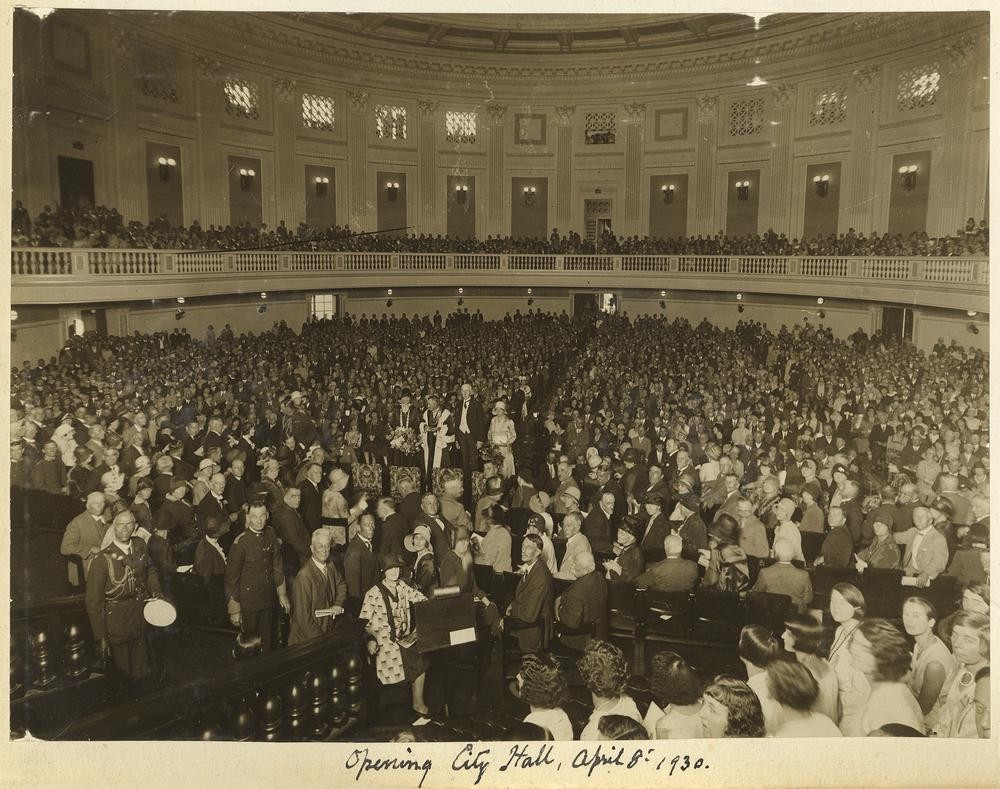
George Sampson arrived in Brisbane in 1898 as organist of St John's Cathedral, a post he occupied until 1947. Sampson formed his own orchestra in 1907 which became the Queensland State and Municipal Orchestra in 1924 and ultimately formed the basis of the Queensland Symphony Orchestra. Sampson also took over the conducting of the Brisbane Musical Union in 1898 and led the choir until the merger in 1930. The Australian Dictionary of Biography has this description of Sampson.
Tall, of distinguished appearance and gentlemanly demeanour, to this day the only professional musician to have belonged to the Queensland Club, Sampson dominated Brisbane's musical life for three decades. He died in Brisbane General Hospital on 23 December 1949 after being knocked over by a tram.
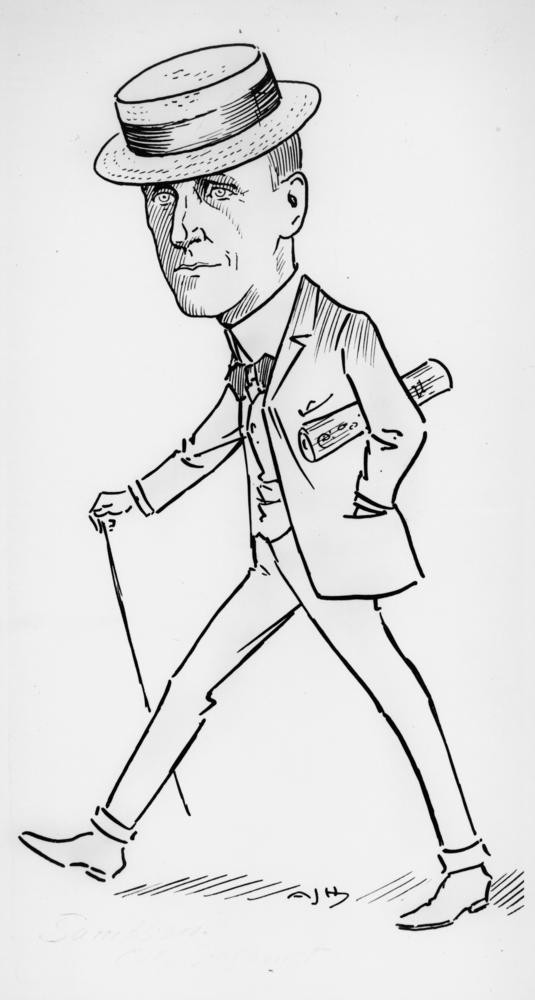
Mr England, the bass soloist, was another prominent musician of the time. You can read more about him in a previous blog post.
The choir, in its latest incarnation as The Queensland Choir, will sing in the first performance of the Messiah in the newly refurbished Brisbane City Hall on the 23rd of November. The Queensland Choir's website has been archived in Pandora.
Simon Miller - Library Technician, State Library of Queensland
Comments
Your email address will not be published.
We welcome relevant, respectful comments.